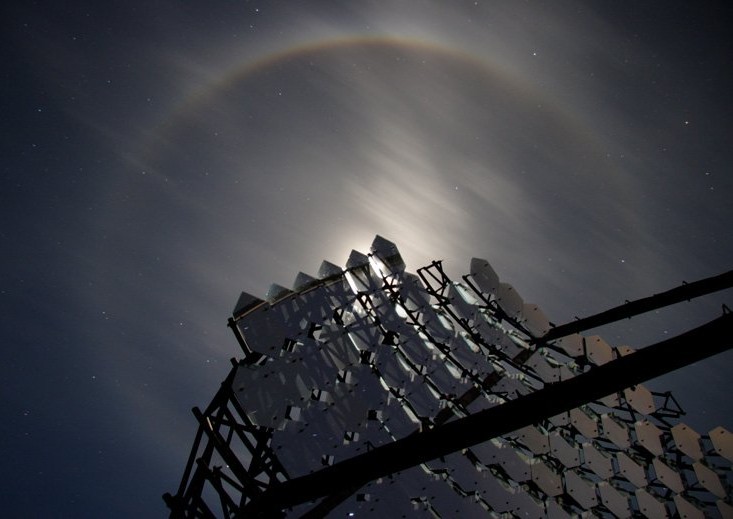NOVEMBER 9, 2006
Halo and Hexagons
EXPLANATION
As a bright November Moon lit up the night sky last week, Gil Esquerdo spotted this lovely Moon halo overhead at the Whipple Observatory on Mt. Hopkins, Arizona. In the foreground, the structure and individual component mirrors of Whipple’s 10 meter gamma-ray telescope actually block direct light from the lunar disk, emphasizing the halo in this dramatic view. The halo was caused by ice crystals in the thin high clouds above the observatory—crystals that are hexagonal in shape and produce the characteristic ring of light with a 22 degree radius. In fact, the ice crystal shapes are much like the flat, hexagonal mirrors of the specialized telescope in the picture. Used together the mirrors can collect brief flashes of optical light caused by high-energy gamma-rays impacting Earth’s atmosphere.
Credit & Copyright
Gil Esquerdo (Whipple Observatory)


